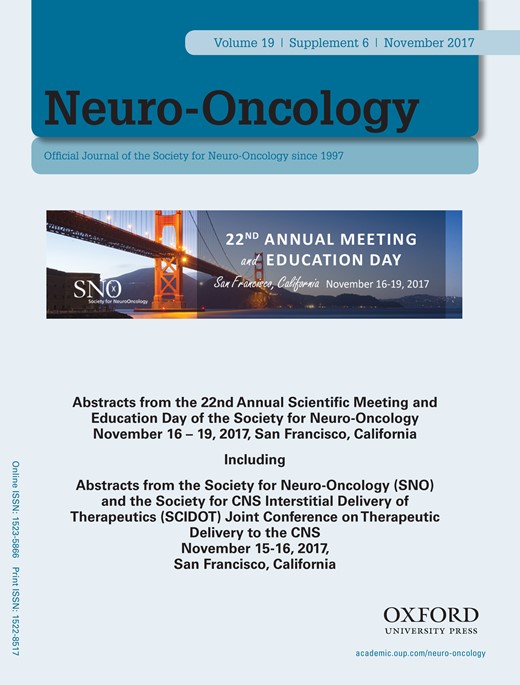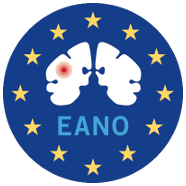-
PDF
- Split View
-
Views
-
Cite
Cite
Ulrich Herrlinger, Theophilos Tzaridis, Frederic Mack, Joachim Steinbach, Uwe Schlegel, Michael Sabel, Peter Hau, Rolf-Dieter Kortman, Dietmar Krex, Oliver Grauer, Roland Goldbrunner, Oliver Schnell, Oliver Baehr, Martin Uhl, Ghazaleh Tabatabai, Florian Ringel, Friederike Schmidt-Graf, Stefanie Brehmer, Astrid Weyerbrock, Lars Bullinger, Peter Vajkoczy, Hartmut Vatter, Niklas Schäfer, Sied Kebir, Johannes Weller, Walter Stummer, Matthias Simon, Vera Keil, Michael Nelles, Rolf Fimmers, Torsten Pietsch, Elke Hattingen, Christoph Coch, Martin Glas, ACTR-58. PHASE III TRIAL OF CCNU/TEMOZOLOMIDE (TMZ) COMBINATION THERAPY VS. STANDARD TMZ THERAPY FOR NEWLY DIAGNOSED MGMT-METHYLATED GLIOBLASTOMA PATIENTS: THE CeTeg/NOA-09 trial, Neuro-Oncology, Volume 19, Issue suppl_6, November 2017, Pages vi13–vi14, https://doi.org/10.1093/neuonc/nox168.049
Close - Share Icon Share
Abstract
There is an urgent need for more effective therapies in glioblastoma (GBM). Data from the single arm UKT-03 trial (Glas et al., J Clin Oncol 27, 1257, 2009) suggested that combined lomustine/temozolomide (CCNU/TMZ) therapy might have superior activity in MGMT-methylated GBM. The phase III CeTeG/NOA-09 trial was set up to test this hypothesis in a randomized setting. Patients with MGMT-methylated GBM were randomized (1:1) for standard therapy with daily TMZ (75 mg/m2) during local radiotherapy (RT, 30 x 2 Gy) followed by 6 courses of TMZ (150–200 mg/m2/day for 5 days q4w) or experimental therapy with CCNU/TMZ in addition to local RT. Six 6-week courses of CCNU/TMZ (CCNU 100 mg/m2 d1, TMZ 100 mg/m2 d2-6) were applied with the first course starting on the first day of RT while continuous concomitant TMZ was not applied. The TMZ dose was adapted in further courses. The primary endpoint was overall survival (OS) in the modified intention-to-treat (mITT) population of patients who had received at least one dose of study medication. For confirmatory analysis, differences in OS were analyzed using the logrank test stratified for center and recursive partitioning analysis group. The trial randomized 141 patients; 129 patients (63 TMZ, 66 CCNU/TMZ) belonged to the mITT population. OS was superior in the CCNU/TMZ arm as compared to the TMZ arm (p=0.049). Significant OS differences were also found in the as-randomized population (p=0.043) and in the subgroup of 103 patients with an IDHwt GBM (p=0.039). In the mITT population, median OS was prolonged from 31.4 months (95%CI 27.0–44.8 months) with TMZ to 37.9 months (95% CI 29.2–51.4 months) with CCNU/TMZ (hazard ratio for death 0.60, 95% CI 0.35–1.03, p=0.064). In summary, CCNU/TMZ combination chemotherapy showed improved efficacy as compared to TMZ standard therapy in patients with newly diagnosed MGMT promotor-methylated GBM.




